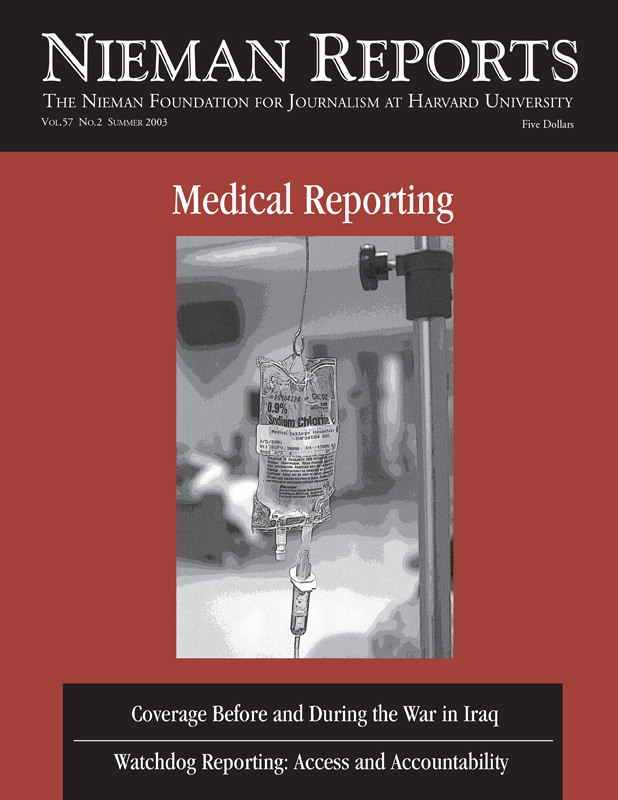Danny Schechter, a 1978 Nieman Fellow, chronicles media coverage daily on Mediachannel.org, a Web site he edits. What follows is an excerpt from his Weblog of March 26, 2003.
“Gulf News recently echoed the view of American media often found in the Arab world: ‘Western channels, notably CNN, have come under fire for not only following but also promoting American policy, serving as “apologists” for a unilateral war on Iraq waged without a U.N. mandate and censoring graphic images of the civilian carnage.’
“And then there is the matter of journalists stealing the show. Writes Gulf News: ‘First person accounts of journalists’ own experiences in war zones have long been the bane of sober political analysts, who regret that sensationalized tales of adventure should eclipse the reality on the ground. As such, critics would argue foreign correspondents reporting on the war in Iraq have broken a cardinal rule of journalism by becoming a part of the story they are sent to cover.’
“If some of the embedded U.S. journalists are showboating, the anchors back home are cheering them on. This prompted a comment from Pulitzer Prize-winner Sidney Schanberg whose coverage of the Cambodian genocide was turned into Hollywood’s ‘The Killing Fields.’ He writes in The Village Voice: ‘A lot of the people reporting on the war have no firsthand experience with it, especially those working from air-conditioned television studios an ocean and a continent away from the fighting. Probably they should begin their reports with some kind of ignorance acknowledgment, but no matter, they are harmless if you hit the mute button. Reporters in the war zones are, for the most part, quite different. Some are new at it, as we all were, but they won’t be innocent for long. War vastly speeds up the initiation process. Clears the mind of flotsam, too. Journalists are already among the allied casualties.’
“And if that is not bad enough: Health experts are warning that too much war watching can be dangerous to your health.”



